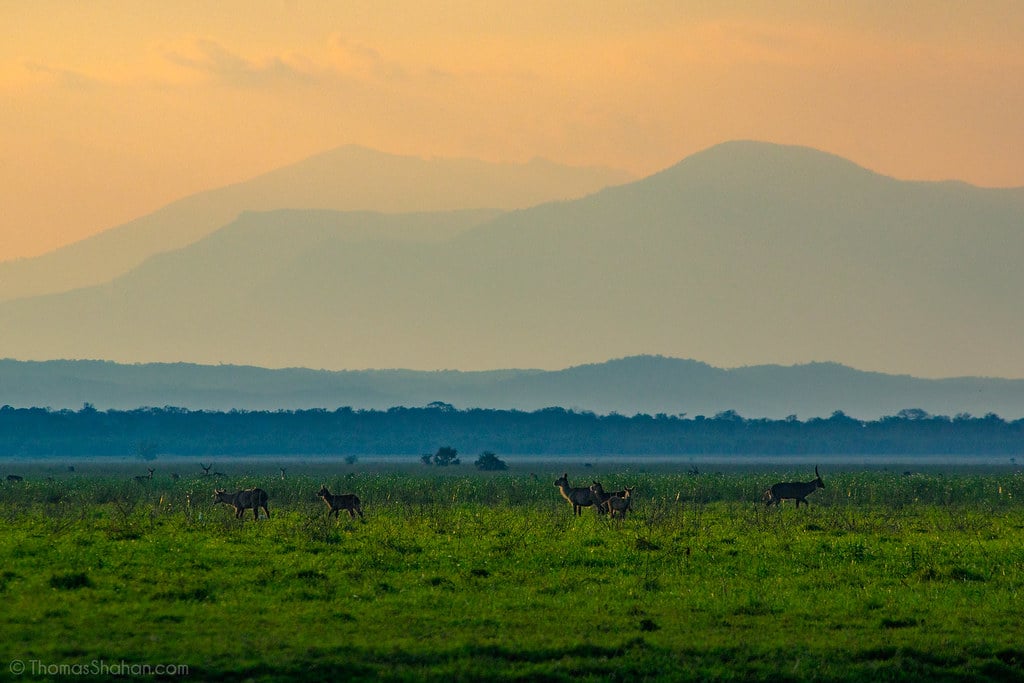The 9th annual Whistleblower Summit and Film Festival is taking place online this year, and among the over 40 films that are available to stream from July 28 to August 1 with a festival pass is Our Gorongosa, produced by James Byrne, Gráinne Keegan, and Carla Rebai. A documentary that examines Mozambique’s Gorongosa National Park through breathtaking cinematography and impactful storytelling, Our Gorongosa focuses on the Park’s efforts to engage community members and improve the livelihoods of people living in the Park’s vicinity. The film has subtitles and is 58 minutes long.
Dominique Gonçalves, a ranger of the Park’s Elephant Ecology Project, tells the beautifully-captured story of Gorongosa National Park and its recent strides to increase community engagement through healthcare, mentorship, and education programs. A Park program called “The Midwives” works to encourage women from all districts to seek medical assistance at Gorongosa health clinics and provides education about family planning methods. Model Moms, another Park program, centers around women educating other women about child malnutrition, a problem that many of the community members face: sometimes through song, the Model Moms educate others about what foods are best to feed young children.
The Agriculture Project provides agricultural support to farmers in the areas near the Park who normally solely rely on “transient farming,” or the process of abandoning a field once it has been harvested. Members of the Agriculture Project also educate farmers on more sustainable ways to grow crops and highlight the importance of biodiversity. Additionally, because many of the farmers are women, the program aims to empower them so that they can be financially independent.
The documentary also features the Park’s work on human-elephant conflicts, which tend to occur on the edges of the Park when elephants cross a river and feast on local farmers’ crops. The farmers, who depend on the crops for survival, work closely with Park officials to come up with solutions to their crops’ depletion by elephants, but Gonçalves underscores the importance of the elephant in the ecosystem. A keystone species, the elephant’s survival impacts much of the surrounding ecosystem and habitat, and part of the Park’s goal is to find a way for humans and elephants to peacefully coexist.
Each of the programs featured in the documentary place a special emphasis on educating and empowering women and girls. One of the most moving parts of the film focuses on the Gorongosa Girls’ Club, a Park project that works to keep girls in school and provide them with positive female role models. The documentary explains that often in rural areas, girls will be encouraged to drop out of school instead of boys, so the Girls’ Club works to inspire girls to continue learning. The audience meets Isabel Pandie, a young member of the Girls’ Club who is academically motivated and loves participating in the Club. Her and her fellow Club members are seen doing a variety of activities, like dancing, theater, and playing games. “The main objective of this program is to keep girls in school,” says Girls’ Club Instructor Julia Jose Carlos.
Through their involvement in the Girls’ Club, the members themselves then serve as role models to others in the community. With encouragement from Park Education Technician Gloria Anita Singarrile, Candida Geraldo, another Girls’ Club member, tells a group of young people about her story. She got married at 14 but after being mistreated by her husband, she moved back home and is now continuing to work on her education. “Today, I say to you not to get married as teenagers,” Geraldo tells the crowd.
Female role models can also be found in the Park workforce: although the majority of the 250+ rangers working in Gorongosa National Park are men, the Park has recently made an effort to recruit women. The team interviews Antonia Albano Vasco, a ranger who admits that being a female ranger isn’t easy, but she takes pride in her job and marvels at the way she can observe the Park’s wildlife every day. “When people in the community see me, they admire me, they appreciate me,” says Vasco. “I think my daughter is going to want to be like her mother.”
Overall, the documentary is incredibly moving and inspiring, and the camera gets up close and personal with the wildlife and includes sweeping shots of the beautiful landscape. Gorongosa National Park is a model for institutions who want to do good in their communities and work towards a better future.
View the official website for Our Gorongosa here.
View more events commemorating this year’s National Whistleblower Day celebration.
